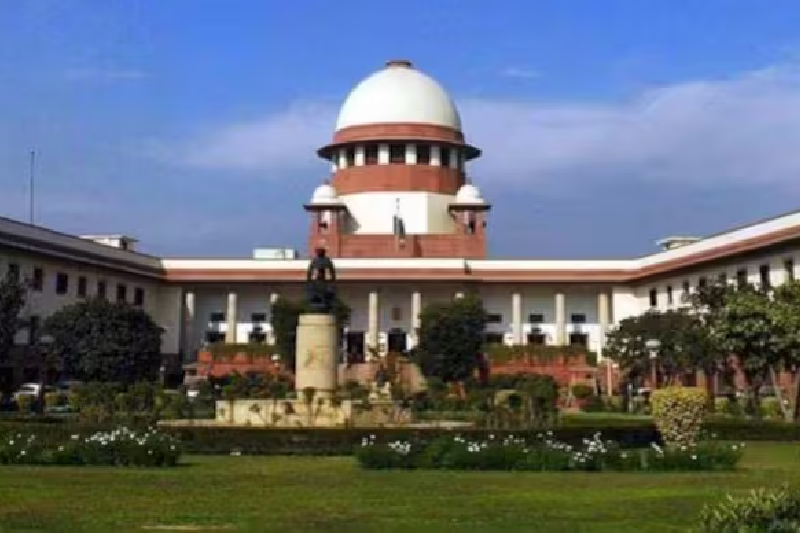
Supreme Court Upholds Three-Year Law Practice Rule for Judicial Exams: No Exception for Serving Judges
In a firm reiteration of its earlier stance, the Supreme Court of India on August 15, 2025, declined to reconsider its ruling mandating three years of law practice experience as a prerequisite for appearing in entry-level judicial service examinations. This decision effectively shuts the door on allowing serving judicial officers to bypass this criterion using their courtroom experience.
The court was hearing a plea by a sitting judge from Madhya Pradesh, who had sought a modification in the May 2024 verdict. The petitioner had requested that their experience as a judicial officer be recognized as qualifying legal experience, allowing them to appear for judicial service examinations in other states.
Background of the Verdict
The legal standard was set on May 20, 2024, when a Supreme Court bench headed by Chief Justice B R Gavai ruled that fresh law graduates would no longer be eligible to appear directly for entry-level judicial service exams. The bench mandated that candidates must have at least three years of active legal practice to qualify.
This decision aimed to ensure that new judges have sufficient exposure to courtroom procedures, client interactions, and practical law, thereby enhancing the quality of the judiciary at its foundational level.
Internships Count, Judicial Officer Experience Doesn’t
While delivering its earlier verdict, the Supreme Court made a noteworthy concession by allowing internship experience (done as part of formal law education) to count towards the three-year experience requirement. However, the experience as a judge—even for several years—was not deemed equivalent.
The latest plea from the Madhya Pradesh judge attempted to argue the reverse: that judicial experience should be considered sufficient, or even superior, for appearing in judicial service exams elsewhere. But the court rejected this argument.
Supreme Court: No Further Reconsideration
On August 15, the bench comprising Chief Justice B R Gavai and Justice K Vinod Chandran decisively dismissed the plea.
The Chief Justice, addressing the petitioner’s concerns, made it clear that permitting such an exception would result in a flood of similar requests, complicating the implementation of a consistent national standard.
“What is wrong in Madhya Pradesh?... We will not modify this. This will open Pandora’s box,” the CJI remarked in court, indicating the potential for widespread disruption if the court were to bend the rules for one category of applicants.
The court emphasized that making exceptions—even for those with judicial experience—could undermine the purpose of the original ruling, which is to bring uniformity and raise standards across all entry-level judicial appointments.
Implications for Serving Judges and Aspirants
The judgment delivers a clear message to those serving as lower judicial officers: their current role will not provide a backdoor entry into higher judicial service examinations in other states without meeting the requisite legal practice criteria.
This may affect judicial officers who are looking to transition or move across jurisdictions through competitive examinations. Unless they have prior legal practice experience, their judicial tenure alone will not qualify them under the current framework.
At the same time, law graduates and interns planning a judicial career must be prepared to complete at least three years of active law practice post-graduation before attempting any judicial service examination.
A Step Toward Higher Standards in Judiciary
The Supreme Court's original decision and its reaffirmation this week appear to be part of a broader strategy to elevate the quality of the Indian judiciary by ensuring that new entrants have practical legal experience before donning the judicial robe.
Critics of the old system had long argued that recruiting fresh graduates directly into the judiciary deprived the system of mature, courtroom-tested minds. The three-year practice rule seeks to address that concern by creating a pipeline of better-prepared judicial officers.
The bench has been consistent in drawing a clear line between academic qualifications and practical exposure. Even though internships are recognized as part of a student's legal training, they are still required to be substantial enough to count toward the three-year threshold.
What's Next for Judicial Recruitment?
This ruling settles, for now, the ongoing debate about qualifications for judicial service and places the emphasis squarely on litigation experience.
Here’s what the current situation looks like for aspirants:
- Minimum Requirement: Three years of law practice in a court of law is mandatory.
- Internship Consideration: Internships undertaken as part of academic programs may count toward the experience, depending on their nature and extent.
- No Shortcut via Judicial Service: Serving judges cannot use their current experience as a replacement for the law practice requirement to appear for new judicial service exams.
- Uniform Rule Across States: This applies to all states, including those like Madhya Pradesh from where the recent petition emerged.
Conclusion
The Supreme Court's refusal to relax the three-year law practice rule—even for sitting judicial officers—marks a strong reaffirmation of its commitment to a more experienced judiciary. By drawing a hard line, the Court ensures that judicial service remains grounded in practical legal training, with no room for shortcuts or exceptions that could compromise judicial competence.
With this ruling, law graduates and judicial officers alike now have a clear, uniform path to judicial service, built on the foundational belief that experience in the legal trenches is indispensable for those who seek to interpret and uphold the law.



